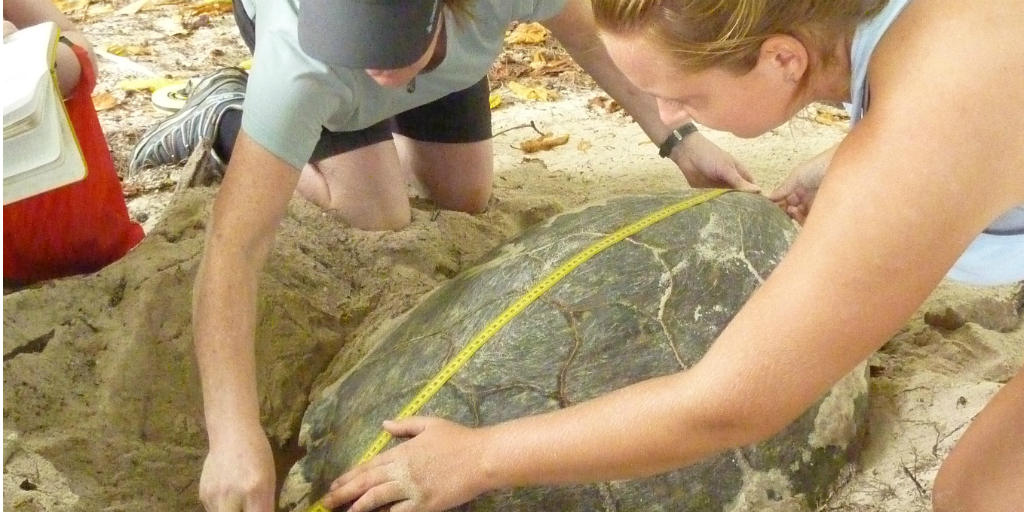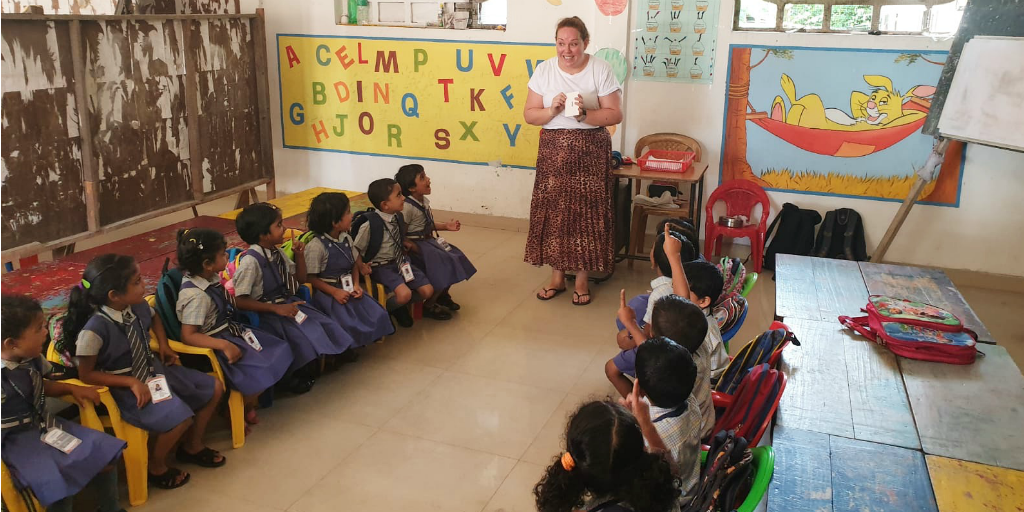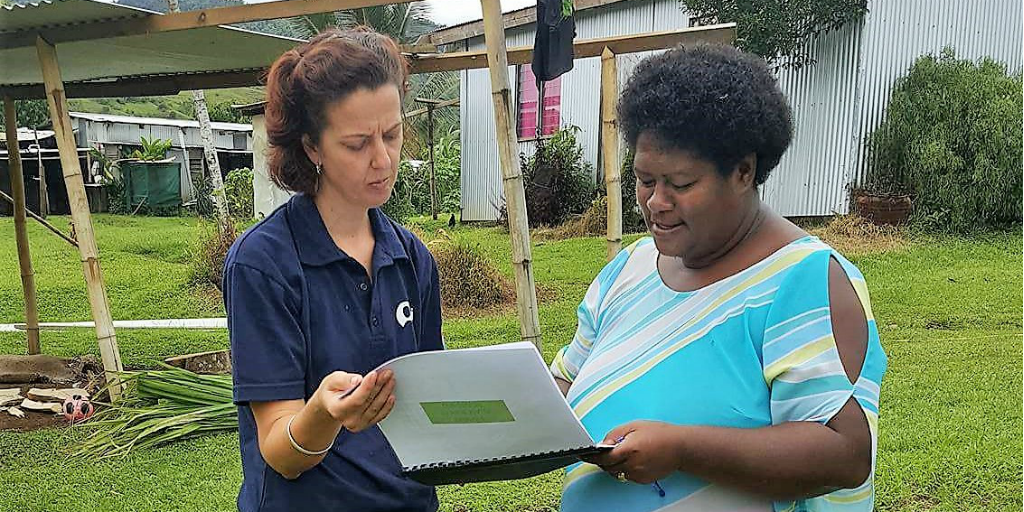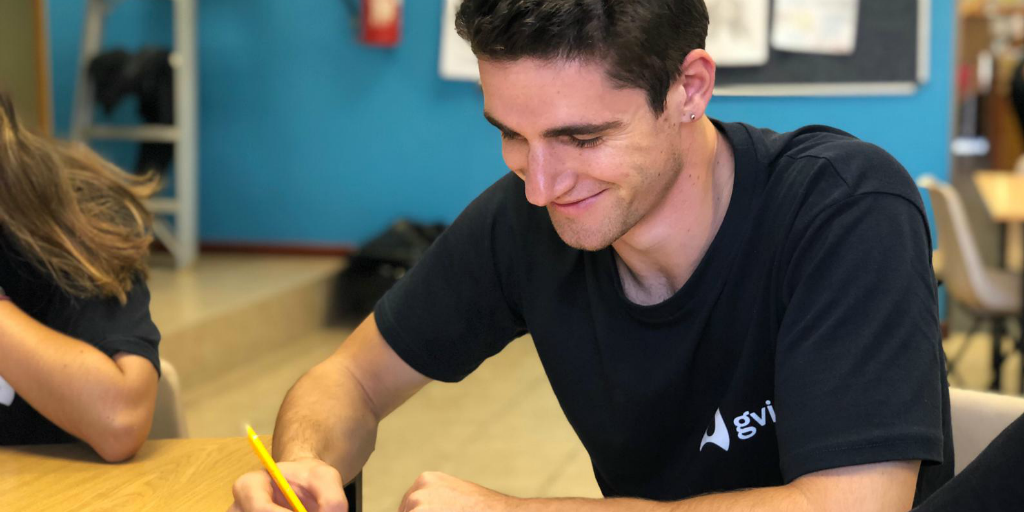
Six benefits of gap semester programs
Zaytoen Domingo
Posted: October 31, 2019
Can’t commit to a full year off? Consider GVI’s gap semester programs as an alternative and still enjoy the benefits of time off from college.
How do you fulfil your travel dreams, find fresh motivation, and grow as an individual while studying? Take a gap year. Or, if you don’t have a full year to spare, take a gap semester.
In a single semester, you can enjoy all of the many gap year benefits.
What is a gap year?
The traditional gap year definition is when you take time off either before or after college. During a gap year, students typically undergo some form of personal development or education outside of the classroom.
Gap year ideas can include working, travelling, volunteering, or carrying out an internship abroad.
A gap year doesn’t necessarily have to be for a full 12 months. The term can refer to any break in your studies.
A gap semester is a convenient way of taking advantage of gap year opportunities in a condensed period of time.
Why you should take a gap semester
Taking a semester off could be an opportunity for discovery and growth. If you use your time productively, your time away from your studies can benefit you personally, academically, and professionally.
1) You can travel the world
One of the most popular things to do in a gap semester is travel abroad. This could be your first big opportunity to travel to regions such as Southeast Asia or Latin America.
As well as giving you the chance to go on adventures you’ve always dreamed about, travelling during a gap semester is also a chance to learn new languages, gain a deeper understanding of global issues, and develop your independence.
Choose to travel for a purpose, by volunteering abroad with GVI, to get the most out of your trip.
2) You’ll expand your thinking
Taking a gap year, or gap semester, will challenge you. A gap semester will help you break out of your cosy student bubble and expose you to different ways of thinking, fresh perspectives, and new people with new ideas.

For example, if you choose to volunteer abroad in Cambodia, you’ll experience cultural immersion and an inside perspective on education in a different country.
The lessons you pick up during a gap semester will help you to become a more globally-minded citizen.
3) You’ll gain new enthusiasm for your studies
Taking a semester off to travel, volunteer, or intern abroad is a great way to give you new motivation for your studies.
This could be your chance to apply what you have already learnt in the classroom to a real-world scenario. For example, you could use research techniques to help gather data on hyenas, using this research to help inform conservation efforts.
After experiencing what it’s like to work in fields such as conservation or education, you might find that you are motivated to return to your studies and work toward clearer career goals.

Practical experience can help you focus on the learning that will best benefit your career and allow you to work in areas you are passionate about.
4) You might find a new direction
If you’ve been feeling like your studies just don’t suit your interests, a gap semester could be your chance to explore a new direction. During your gap semester, you may discover a new passion, or rule something out as an area of interest.
Volunteering programs and internships let you try your hand in different fields, gaining practical experience for your CV while giving you a taste of what a career in those fields might look like.
For example, you might give marine conservation, teaching, or community development a go.

5) You can take your learning beyond the classroom
Gap semesters are a chance to experience education in a different format. You can give context to concepts you have learned in your academic career, and put theoretical knowledge to practical use.
For example, gender equality might make logical sense when you are taught the statistics in class, but it takes on new dimensions when you volunteer to help empower women in countries such as South Africa or Ghana.

Seeing how real people are affected by global issues, and the active role you can play, is a valuable educational experience that you won’t be able to find within the four walls of a classroom.
6) You don’t need to take a whole year
A gap semester allows you to reap all the key gap year benefits in a shorter space of time. If you can’t commit to a full year, a single semester is an excellent compromise.
If your family or friends have concerns about you taking time off your studies, you might find it easier to explain taking a semester off, rather than a full year.
Only taking one semester also means you’ll be able to complete your studies sooner than you would if you took a year.
How to take a gap semester

You can take a gap semester between finishing high school and starting university, or you can take a semester off during the course of your undergraduate study.
Ideally, you will be able to align your gap semester with your university term. This will typically give you three to four months in which you can explore gap year opportunities.
Speak to your admissions advisor or college counsellor to ask about gap semester possibilities.
Gap semester programs

If you’re wondering what to do in a gap semester, a simple answer is to investigate gap semester travel programs.
GVI’s gap year programs combine travel opportunities to exciting destinations with meaningful projects that will help you gain both hard and soft skills.
You could find things to do in a gap semester ranging from teaching English to novice Buddhist monks in Laos to going on a wildlife research expedition in South Africa.
Organised programs also ensure maximum time efficiency, so you can make the most of your entire gap semester. You’ll also meet other like-minded individuals, making both new friends and networking connections.
Discover gap semester programs with GVI. Browse our international volunteering or internship opportunities today.
By Zaytoen Domingo


